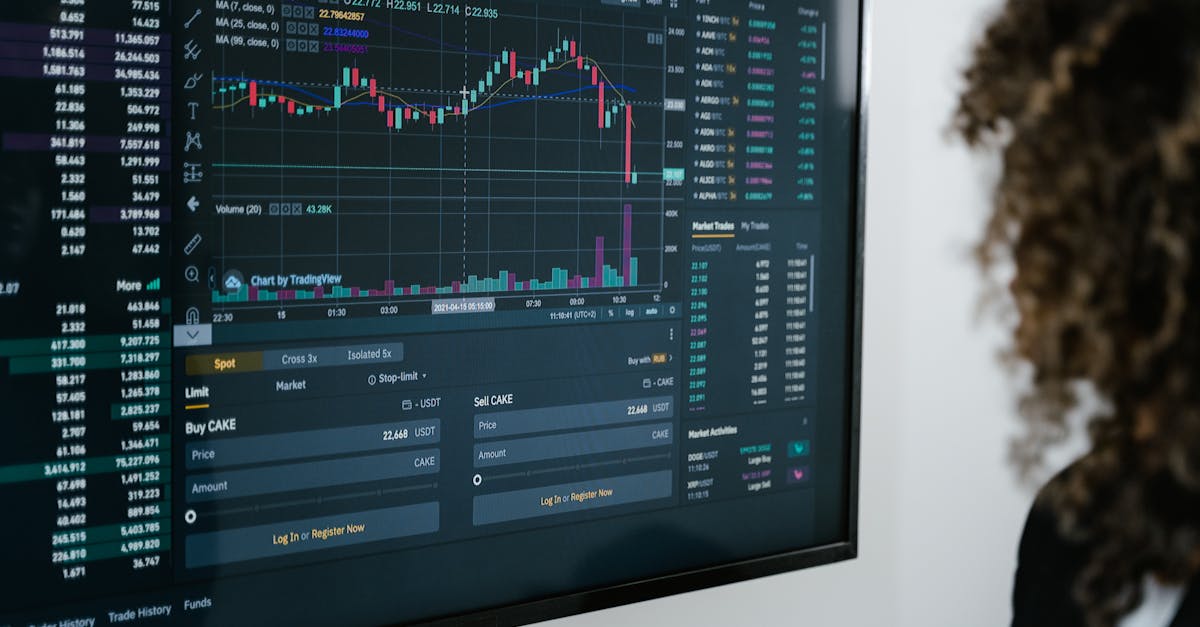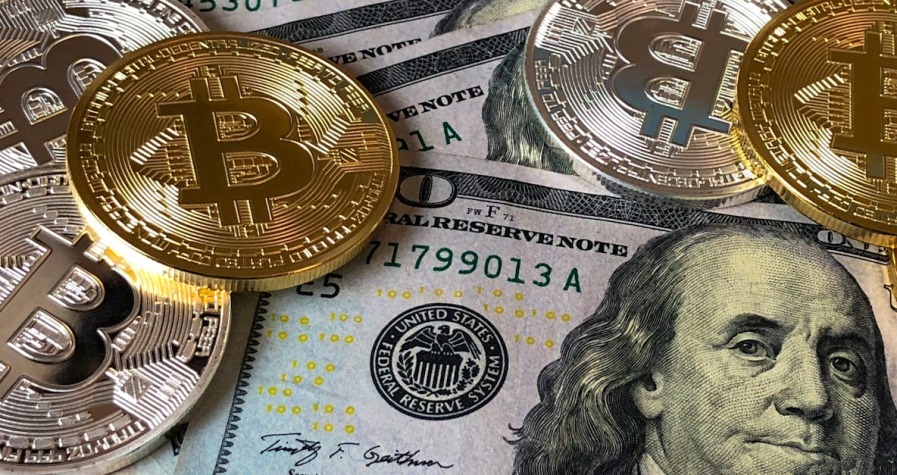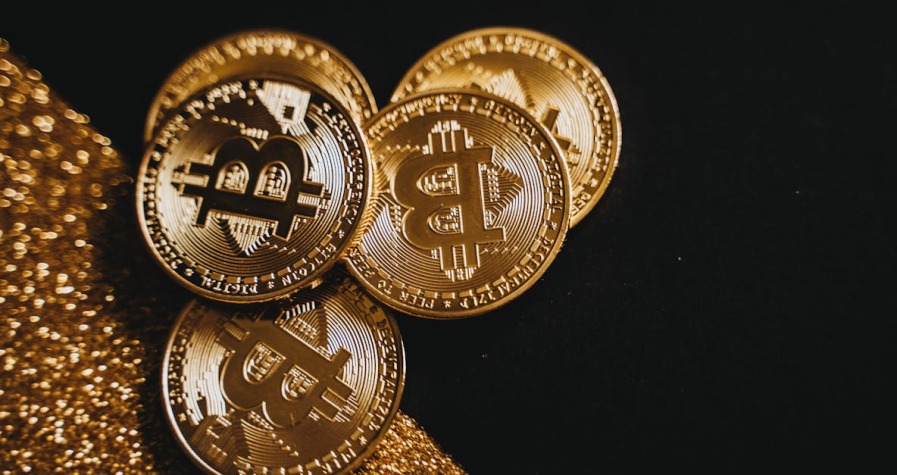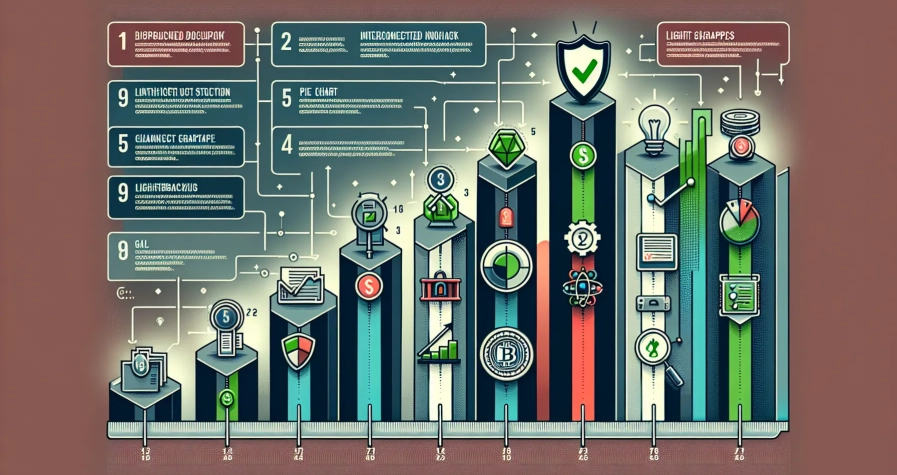Buying cryptocurrency with PayPal has become one of the most convenient ways to enter the digital asset market. You’ll find that PayPal’s familiar interface and trusted security features make it an ideal gateway for both beginners and experienced investors looking to purchase crypto quickly and safely.
PayPal supports several major cryptocurrencies and offers a streamlined purchasing process that takes just minutes to complete. You can buy crypto directly through the PayPal app or website without needing to navigate complex crypto exchanges or wallet setups.
Whether you’re making your first crypto purchase or simply want a more straightforward buying method, PayPal’s crypto service provides instant access to digital currencies with the payment platform you already know and trust.
What You Need to Know Before Buying Crypto with PayPal
Account Requirements and Verification
Your PayPal account must be fully verified before you can purchase cryptocurrency. PayPal requires identity verification through government-issued documents such as passports, driving licences, or national ID cards. Verification typically takes 24-48 hours to complete once you submit the required documentation.
You’ll also need a linked funding source to complete crypto purchases. PayPal accepts bank accounts, debit cards, and credit cards as funding methods. Credit card purchases may incur higher fees compared to bank transfers or debit card transactions.
Geographic Restrictions
PayPal’s crypto service operates in limited regions across the globe. Currently, the service is available in:
| Region | Availability |
|---|---|
| United States | Full service |
| United Kingdom | Full service |
| Germany | Full service |
| Australia | Full service |
| Canada | Limited features |
PayPal regularly expands its crypto services to additional countries, though specific launch dates aren’t announced in advance.
Supported Cryptocurrencies
PayPal currently supports four major cryptocurrencies for purchase and sale:
- Bitcoin (BTC) – The original cryptocurrency with the largest market capitalisation
- Ethereum (ETH) – Smart contract platform cryptocurrency
- Litecoin (LTC) – Faster transaction processing alternative to Bitcoin
- Bitcoin Cash (BCH) – Bitcoin fork designed for everyday transactions
Custody and Withdrawal Limitations
PayPal maintains custody of your cryptocurrency, meaning you don’t receive private keys or direct blockchain access. Your crypto remains stored on PayPal’s platform rather than in an external wallet. This custody model limits your ability to transfer cryptocurrency to other platforms, wallets, or exchanges.
You cannot withdraw your purchased cryptocurrency to external addresses or cold storage wallets. PayPal’s crypto functions primarily as an investment vehicle rather than a means for blockchain transactions or peer-to-peer transfers.
Fee Structure
PayPal implements a spread-based fee system for crypto transactions rather than flat rates. Purchase fees typically range from 0.5% to 2.3% depending on the transaction amount:
| Purchase Amount | Fee Range |
|---|---|
| £1 – £25 | 2.3% |
| £25 – £100 | 2.0% |
| £100 – £200 | 1.8% |
| £200 – £1,000 | 1.5% |
| Over £1,000 | 0.5% |
Additional network fees may apply during periods of high blockchain congestion, though PayPal absorbs most network costs for standard transactions.
Setting Up Your PayPal Account for Cryptocurrency
Setting up your PayPal account for cryptocurrency purchases involves completing identity verification and linking a funding source. These essential steps ensure compliance with financial regulations whilst enabling secure crypto transactions.
Verifying Your Identity
PayPal requires identity verification before you can purchase cryptocurrency through their platform. You must provide valid personal identification information within your account settings to comply with regulatory guidelines.
The verification process involves uploading government-issued documents such as a driving licence or passport. PayPal reviews these documents to confirm your identity and ensure compliance with anti-money laundering regulations.
You’ll also need to enable two-factor authentication for enhanced security when accessing crypto features. This additional security layer protects your account during crypto purchases and provides an extra safeguard for your digital assets.
The verification process typically completes within 24-48 hours once you submit all required documentation. PayPal sends confirmation via email when your account gains approval for cryptocurrency transactions.
Linking Your Bank Account or Card
You must link a bank account debit card or credit card to your PayPal account before purchasing cryptocurrency. This linked payment method serves as your funding source for all crypto transactions on the platform.
Navigate to your PayPal wallet settings and select “Link a card or bank” to add your preferred payment method. PayPal accepts most major UK banks and card providers for crypto purchases.
The platform performs micro-deposits or small verification charges to confirm your bank account ownership. You’ll need to verify these amounts in your PayPal account within 2-3 business days to complete the linking process.
PayPal supports multiple payment methods simultaneously so you can choose different funding sources for various crypto purchases. Credit cards typically incur higher fees compared to bank transfers or debit card payments for cryptocurrency transactions.
How to Buy Cryptocurrency Through PayPal Directly
PayPal’s integrated crypto service provides users with direct access to purchase digital currencies without third-party platforms. You can complete transactions within minutes using your existing PayPal balance or linked payment methods.
Available Cryptocurrencies on PayPal
PayPal supports four major cryptocurrencies for direct purchase on its platform. Bitcoin (BTC) serves as the primary offering alongside Ethereum (ETH), Litecoin (LTC), and Bitcoin Cash (BCH). These selections represent the most established digital currencies in the market, providing you with access to both store-of-value assets like Bitcoin and utility tokens such as Ethereum.
Cryptocurrency availability varies by region and account type. UK users typically access all four supported assets, whilst users in other territories may experience limited options. PayPal regularly evaluates expanding its crypto portfolio, though no specific timeline exists for additional currencies.
Step-by-Step Purchase Process
Accessing PayPal’s crypto purchasing interface begins through your account dashboard. Navigate to the “Crypto” section within your main account menu, where you’ll find purchase options prominently displayed. Mobile app users locate this feature under the “Accounts” tab, followed by selecting “Crypto” and then “Buy”.
Selecting Your Cryptocurrency:
Choose your preferred digital currency from PayPal’s supported options. Enter your desired purchase amount using either pounds sterling or the cryptocurrency’s unit value. PayPal displays real-time exchange rates, allowing you to see exactly how much crypto you’ll receive.
Payment Method Selection:
Select your funding source from available options linked to your account. PayPal balance provides the fastest processing, whilst bank transfers and debit cards offer alternative payment routes. Credit card purchases incur higher fees ranging from 2.3% compared to 0.5% for bank-funded transactions.
Transaction Confirmation:
Review your purchase details including the crypto amount, fee structure, and total cost. PayPal requires final authorisation through your account password or biometric authentication. Processing typically completes within seconds, with your crypto balance updating immediately in your portfolio section.
Your purchased cryptocurrency remains in PayPal’s custody system. You can view balances, track performance, and sell back to pounds sterling through the same interface, though external wallet transfers aren’t available for PayPal-held crypto assets.
Using PayPal to Buy Crypto on External Exchanges
External cryptocurrency exchanges provide an alternative route for PayPal users seeking broader coin selections and external wallet transfers. These platforms integrate PayPal as a payment method whilst offering enhanced flexibility for cryptocurrency management.
Best Exchanges That Accept PayPal
Coinbase leads the UK market for PayPal integration, allowing users in the UK and Germany to link their PayPal accounts directly for seamless cryptocurrency purchases. The platform eliminates complex bank transfers by enabling instant PayPal transactions for major cryptocurrencies including Bitcoin, Ethereum, and Litecoin.
BitPay supports Bitcoin, Ether, Litecoin, and numerous altcoins through its PayPal integration system. Users access over 170 different cryptocurrencies via BitPay’s platform, making it ideal for diversified crypto portfolios beyond PayPal’s limited selection.
Paybis focuses primarily on Bitcoin transactions through PayPal, offering a streamlined purchasing experience for users prioritising the world’s largest cryptocurrency. The platform maintains competitive rates and quick processing times for UK customers.
Best Wallet app accommodates 100+ tokens whilst accepting PayPal payments at checkout. Users select PayPal during the payment process and authorise transactions through PayPal’s secure platform interface.
| Platform | Supported Cryptocurrencies | UK Availability | Key Features |
|---|---|---|---|
| Coinbase | 200+ cryptocurrencies | Yes | Direct PayPal linking |
| BitPay | Bitcoin, Ether, Litecoin + 170 others | Yes | Wide coin selection |
| Paybis | Bitcoin-focused | Yes | Bitcoin specialisation |
| Best Wallet | 100+ tokens | Yes | Mobile app integration |
Transfer Process and Fees
Purchase Process: You enter the spending amount or specify the cryptocurrency quantity you want to buy on your chosen exchange. The platform redirects you to PayPal’s authorisation page where you confirm the payment using your PayPal login credentials. Cryptocurrency transfers to your specified wallet address immediately after payment confirmation.
External Wallet Transfers: Most external exchanges send purchased cryptocurrency directly to your external wallet address, unlike PayPal.com which restricts external transfers for non-US users. You provide your wallet address during the purchase process to receive your cryptocurrency holdings outside the exchange platform.
Fee Structure: PayPal transaction fees vary significantly across platforms. Fixed fees range from £0.49 to £2.49 on smaller transactions, whilst percentage-based fees span 1.5% to 1.8% on larger purchases. Additional network fees may apply during high-traffic periods, particularly for Ethereum and Bitcoin transactions.
Processing Speed: PayPal transactions complete faster than traditional bank transfers, typically processing within minutes compared to several hours for bank-based payments. This speed advantage makes PayPal attractive for time-sensitive cryptocurrency purchases during market volatility.
PayPal Crypto vs Traditional Exchange Purchases
PayPal’s crypto service offers convenience but differs significantly from traditional exchanges in ownership rights and cost structure. Understanding these distinctions helps you make informed decisions about which platform suits your cryptocurrency goals.
Ownership and Storage Differences
When you buy cryptocurrency through PayPal directly, you can purchase, hold and sell digital assets within your PayPal account but cannot transfer these assets to external wallets. PayPal maintains custody of your cryptocurrency holdings, meaning you don’t receive private keys or control the underlying blockchain assets.
Traditional exchanges grant complete ownership of your purchased cryptocurrency. You can transfer digital assets to personal wallets, cold storage devices or other platforms. This flexibility allows you to participate in decentralised finance (DeFi) protocols, stake your tokens or use your crypto for various blockchain applications that PayPal’s custodial model restricts.
The storage limitation on PayPal means your cryptocurrency remains locked within their ecosystem. Traditional exchanges provide the freedom to move your assets wherever you choose, giving you true ownership and control over your digital investments.
Fee Comparisons
PayPal charges transaction fees and applies exchange rate spreads on cryptocurrency purchases and sales. These fees vary by transaction amount and cryptocurrency type, with PayPal disclosing exact costs during the purchase process. Additional bank fees may apply when using linked bank accounts or debit cards as funding sources.
Traditional exchanges employ varied fee structures that often include trading fees, withdrawal fees and network fees. Many platforms offer tiered pricing based on trading volume, with higher-volume traders receiving reduced fees. Exchange fees can be lower than PayPal’s rates, particularly for larger transactions or frequent trading activities.
| Platform Type | Typical Fee Range | Additional Costs |
|---|---|---|
| PayPal Direct | 0.5% – 2.3% | Bank fees, exchange spreads |
| Traditional Exchanges | 0.1% – 1.5% | Withdrawal fees, network fees |
PayPal’s fee structure prioritises simplicity with integrated pricing, while traditional exchanges often provide more transparent fee breakdowns and competitive rates for active traders. Your choice depends on whether you value convenience over cost optimisation and trading flexibility.
Security Considerations When Using PayPal for Crypto
PayPal’s crypto service operates under strict regulatory frameworks that provide enhanced security but introduce specific considerations you must understand before making purchases.
Regulatory Compliance and Identity Verification
PayPal functions as a regulated financial institution that adheres to comprehensive Know Your Customer (KYC) and Anti-Money Laundering (AML) requirements. Your identity undergoes verification through government-issued documents and your personal information becomes permanently linked to all cryptocurrency transactions. This regulatory oversight creates a secure environment that prevents fraudulent activities and money laundering but eliminates the anonymity typically associated with cryptocurrency transactions.
Transaction Transparency and Record Keeping
All cryptocurrency holdings and transactions through PayPal connect directly to your verified account profile. PayPal maintains detailed records of your crypto activity and shares this information with financial regulators when required by law. This transparency protects against illicit activities and provides clear transaction histories for tax reporting purposes but may concern users who prioritise financial privacy.
Exchange Rate Protection
PayPal locks exchange rates at the moment you confirm your purchase to protect against sudden price volatility during transaction processing. This rate lock prevents you from experiencing losses due to rapid market fluctuations between purchase initiation and completion but also means you cannot benefit from favourable price movements that occur during processing.
Enhanced Security Features
PayPal implements advanced fraud detection systems encryption protocols and buyer protection tools that monitor your crypto transactions for suspicious activity. These security measures include:
- Real-time transaction monitoring algorithms
- Multi-layer encryption for financial data protection
- Automated fraud detection systems
- Customer support for dispute resolution
- Account recovery assistance
Fee Structure and Cost Transparency
PayPal charges transaction fees ranging from 0.5% to 2.3% depending on your purchase amount which is higher than most dedicated cryptocurrency exchanges. These elevated fees reflect the additional security infrastructure and regulatory compliance costs but provide transparent pricing without hidden charges or complex fee structures.
Custody and Wallet Limitations
PayPal maintains custody of your cryptocurrency holdings which eliminates the risk of losing private keys or falling victim to wallet hacks. However this custody model restricts your ability to transfer cryptocurrencies to external wallets or participate in decentralised finance protocols. Your crypto assets remain within PayPal’s secure ecosystem with limited transferability options.
Common Issues and How to Resolve Them
PayPal crypto purchases present unique challenges that differ from traditional cryptocurrency transactions. Understanding these limitations helps you navigate potential complications effectively.
No Buyer Protection Coverage
PayPal Buyer Protection doesn’t cover cryptocurrency purchases, leaving you without the standard refund mechanisms available for other transactions. However, PayPal protects your account against unauthorised activity when you follow their terms of service. Report suspected fraud immediately through PayPal’s Help Center to trigger their investigation process. Document any suspicious activity with screenshots and transaction details to support your claim.
Irreversible Transaction Nature
Cryptocurrency purchases through PayPal can’t be cancelled or reversed after confirmation, unlike traditional PayPal payments. Verify all transaction details including the cryptocurrency type, purchase amount, and payment method before finalising your order. Double-check the current market price displayed on screen, as this rate becomes locked upon confirmation. Contact PayPal support immediately if you notice errors, though reversal options remain extremely limited.
Private Key Restrictions
PayPal doesn’t provide private keys for cryptocurrency purchases, meaning you receive account-based rights rather than direct ownership. Your crypto balance exists within PayPal’s custody system, preventing transfers to external wallets or participation in decentralised finance protocols. This limitation affects your ability to stake tokens, participate in DeFi lending, or move assets to hardware wallets for enhanced security.
Purchase Limit Constraints
UK users face specific purchasing restrictions including a weekly limit of £15,000 and an annual rolling limit of £35,000 for cryptocurrency transactions. These limits apply across all crypto purchases within your PayPal account regardless of the specific cryptocurrency chosen. Track your purchase history through your account dashboard to monitor remaining limits. Contact PayPal directly if you require higher limits for legitimate investment purposes.
Verification Requirements
Most platforms accepting PayPal for crypto purchases require full account verification before allowing transactions. Exodus wallet, for example, mandates identity verification regardless of purchase amount. Prepare government-issued identification documents, proof of address, and ensure your PayPal account maintains good standing. Complete verification processes can take 24-48 hours, potentially delaying time-sensitive purchases during market volatility.
Price Fluctuation Management
Cryptocurrency prices update regularly on PayPal’s platform, but the rate becomes fixed at confirmation rather than order initiation. Market movements between browsing and confirming your purchase can result in unexpected pricing changes. Monitor real-time prices closely and complete transactions quickly during periods of high volatility. PayPal’s price lock mechanism protects against further changes once confirmed but doesn’t account for delays in your decision-making process.
| Issue Type | Resolution Method | Timeframe |
|---|---|---|
| Suspected fraud | Report via Help Center | Immediate |
| Purchase errors | Contact platform support | 24-48 hours |
| Verification delays | Submit complete documentation | 24-48 hours |
| Price discrepancies | Monitor real-time rates | Immediate |
Conclusion
PayPal offers a streamlined entry point into cryptocurrency investing that’s perfect if you’re new to digital assets or prefer using familiar platforms. You’ll benefit from robust security features and a user-friendly interface though you’ll need to accept custody limitations and higher fees compared to traditional exchanges.
Whether you choose PayPal’s direct crypto service or use it on external exchanges depends on your priorities. If convenience and simplicity matter most you’ll find PayPal’s integrated solution ideal. However if you want full ownership and lower costs traditional exchanges accepting PayPal payments might better serve your needs.
Before making your first purchase ensure you’ve completed account verification and understand the fee structure. Remember that crypto purchases through PayPal aren’t covered by standard buyer protection so double-check all transaction details before confirming your order.
Frequently Asked Questions
Can I buy cryptocurrency through PayPal in the UK?
Yes, PayPal’s cryptocurrency service is available in the United Kingdom, along with the United States, Germany, Australia, and Canada. UK users can purchase Bitcoin, Ethereum, Litecoin, and Bitcoin Cash directly through their PayPal account after completing identity verification and linking a funding source.
What cryptocurrencies can I purchase using PayPal?
PayPal currently supports four major cryptocurrencies: Bitcoin (BTC), Ethereum (ETH), Litecoin (LTC), and Bitcoin Cash (BCH). These digital assets can be purchased, held, and sold within your PayPal account, though the selection is more limited compared to traditional cryptocurrency exchanges.
Do I need to verify my identity to buy crypto on PayPal?
Yes, PayPal requires identity verification for cryptocurrency purchases to comply with KYC (Know Your Customer) regulations. You’ll need to upload government-issued identification, such as a driving licence or passport, and enable two-factor authentication. The verification process typically takes 24-48 hours to complete.
What are PayPal’s fees for cryptocurrency purchases?
PayPal charges transaction fees ranging from 0.5% to 2.3%, depending on the purchase amount. These fees are generally higher than traditional cryptocurrency exchanges, which typically charge between 0.1% and 1.5%. Additional network fees may apply during periods of high blockchain congestion.
Can I transfer my PayPal cryptocurrency to an external wallet?
No, PayPal maintains custody of all purchased cryptocurrencies, meaning you cannot transfer them to external wallets or access private keys. Your crypto assets remain within PayPal’s platform, where you can buy, hold, and sell them, but cannot participate in DeFi protocols or external transactions.
How long does it take to buy cryptocurrency through PayPal?
Cryptocurrency purchases through PayPal typically complete within seconds once you’ve confirmed the transaction. The process involves selecting your preferred cryptocurrency, entering the purchase amount, choosing your funding source, and authorising the transaction through PayPal’s interface with real-time exchange rates displayed.
Which payment methods can I use to buy crypto on PayPal?
PayPal accepts linked bank accounts and debit/credit cards as funding sources for cryptocurrency purchases. Most major UK banks and card providers are supported. You’ll need to verify small charges to confirm the linking process. Note that credit cards may incur higher fees compared to bank transfers.
Are PayPal crypto purchases covered by buyer protection?
No, PayPal’s standard buyer protection does not cover cryptocurrency transactions. All crypto purchases are irreversible, so it’s crucial to verify transaction details before confirmation. This means there are no refund mechanisms available if you’re unsatisfied with your purchase or encounter issues.
Can I use PayPal on other cryptocurrency exchanges?
Yes, several cryptocurrency exchanges accept PayPal as a payment method, including Coinbase, BitPay, Paybis, and Best Wallet. These platforms offer broader coin selections and allow transfers to external wallets, providing more flexibility than PayPal’s direct crypto service whilst maintaining payment convenience.
What are the main differences between PayPal crypto and traditional exchanges?
The key difference is ownership and control. PayPal retains custody of your cryptocurrencies, whilst traditional exchanges allow complete ownership with private key access. Traditional exchanges typically offer lower fees, more cryptocurrencies, and the ability to transfer assets to external wallets or participate in DeFi protocols.









